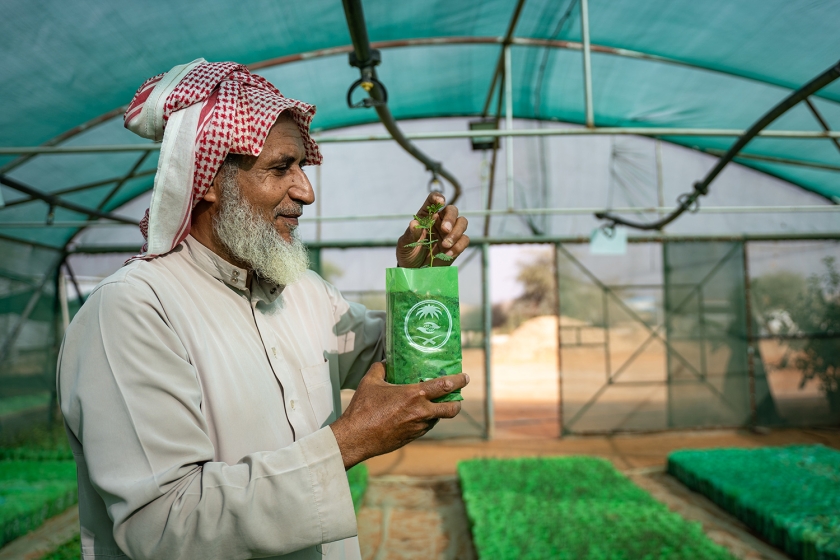
GEF earmarks $204.3 m to help UNDP scale up efforts for climate resilient future
The Global Environment Facility (GEF) has just approved $204.3 million for the United Nations Development ...

Saudi Arabia aims at planting at total of 50 billion trees; 10 billion in the kingdom and 40 billion in the region, thus representing five percent of the global afforestation target, and the equivalent of restoring 200 million hectares of degraded land.
Through the Middle East Green Initiative, Saudi Arabia is leading efforts to plant an additional 40 billion trees across the region with the aim of reducing soil erosion, protecting biodiversity, and mitigating the impacts of climate change.
Launched in March 2021, the Saudi Green Initiative aims to turn 30 percent of Saudi Arabia’s land into nature reserves, plant 10 billion trees and restore 40 million hectares of degraded land.
“The country’s goal is to plant 400 million trees by 2030,” says Khaled Alabdulkader, the CEO of Saudi Arabia’s National Center for Vegetation Cover Development and Combating Desertification.
Saudi Arabia has also partnered with the Group of 20 nations and United Nations Convention to Combat Desertification (UNCCD) to launch the G20 Global Land Initiative, which aims to cut degradation by 50 per cent by 2040. As well, Saudi Arabia will host the 16th Conference of Parties for the UNCCD, widely seen as a pivotal moment in the global effort to end land degradation.
Globally, countries have pledged to restore one billion hectares of land – an area larger than China, under the UN Decade on Ecosystem Restoration. But if current trends persist, 1.5 billion hectares would need restoring to meet 2030 land degradation neutrality goals.
“Land protection and restoration activities deliver positive biodiversity outcomes as well as multiple benefits for people, including water and food security, public health and wellbeing, climate mitigation and adaptation,” said Susan Gardner, the Director of the Ecosystems Division of the United Nations Environment Program (UNEP).
On 5 June, Saudi Arabia will host World Environment Day 2024, an annual celebration of the planet which this year focuses on desertification, land degradation and drought resilience.
More than 2 billion hectares of the world’s land is degraded, affecting half the global population, and threatening countless species.
Faced with more severe and prolonged droughts, sandstorms and rising temperatures, finding ways to stop dry land from becoming desert, fresh water sources from evaporating, and fertile soil from turning to dust, is now crucial, say experts.
The Global Environment Facility (GEF) has just approved $204.3 million for the United Nations Development ...
The European Bank for Reconstruction and Development (EBRD) is promoting renewable energy and low‑carbon technologies ...
Vodafone Foundation has pledged €30,000 to Save the Children in response to the devastation caused ...


اترك تعليقا